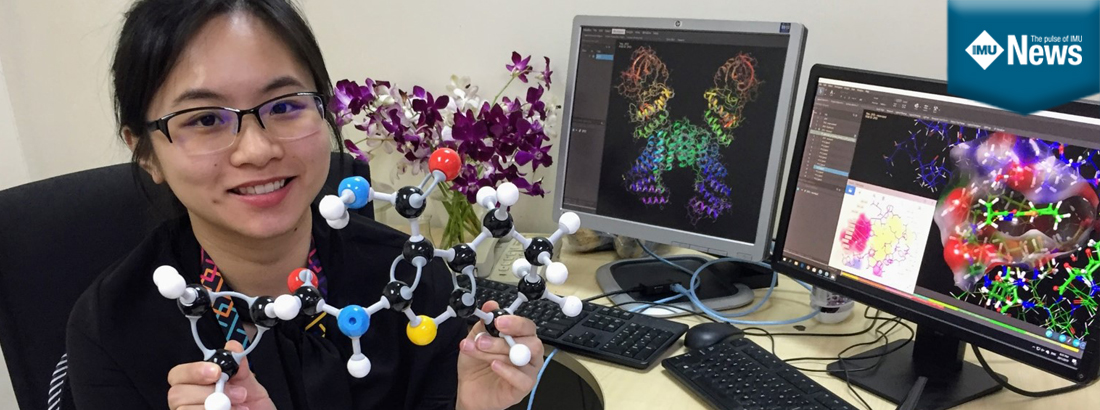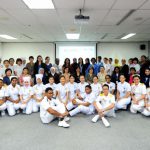Tuberculosis (TB) is a contagious and potentially life-threatening disease transmitted through the air (such as talking, coughing or sneezing). It is caused by the Mycobacterium tuberculosis bacteria that attacks the lungs. It can also damage other parts of the body.
| According to the Centres for Disease Control and Prevention in the US, TB is one of the world’s deadliest diseases due to the following: |
|---|
| • One fourth of the world’s population, is infected with TB. |
| • In 2017, 10.0 million people around the world became sick with TB. |
| • There were 1.3 million TB-related deaths worldwide. |
| • TB is a leading killer of people who are HIV infected. |
In 2017, Multidrug Resistant (MDR) and Extremely Multidrug Resistant (XDR) tuberculosis recorded a mortality rate of 40% and 60% respectively. In Malaysia, the incidence of tuberculosis is on the rise with 26,168 cases reported in the year of 2017. Of which, 45% are resistant to first line drugs, leading to MDR/XDR TB. The biggest challenge in tuberculosis drug discovery is to reduce the treatment period from more than 6 months to just one week. In view of the alarmingly high incidence and mortality rate, the Bioactive Molecule and Drug Delivery (BMDD) team under the Institute of Research, Development & Innovation (IRDI) at the International Medical University (IMU) is aiming to incorporate Artificial Intelligence (AI) and cheminformatics in the search and design of novel drugs as potential new therapeutics in treating tuberculosis. The BMDD centre is currently headed by Prof Mallikarjuna Rao Pichika who is also the Associate Dean (Research & Consultancy), School of Pharmacy as well as a Pharmaceutical Chemistry Professor at IMU. Together with an IMU alumna, Mak Kit Kay, they formed a team and submitted a few research proposals. The proposals were about integrating AI and cheminformatics approaches to design novel drug-like molecules for tuberculosis.
The team secured two Artificial Intelligence Molecular Screen (AIMS) Awards from Atomwise, USA. The awards allow the team to carry out the proposed AI-powered virtual screening.
A similar research proposal, using cheminformatics approach, was applied for International Scientific Challenge organised by BioSolveIT, Germany. It became one of the selected five research proposals, where the team was given access to use BioSolveIT’s computational drug discovery software to design novel drugs. Riding on the same wave, the team also has a scientific paper published in a high impact factor journal ‘Drug Discovery Today’ (Impact factor: 6.84; Tier: Q1) focusing on the present status and future prospects of AI in drug development. AI is a promising advanced tool in drug development that should be utilised to leapfrog the medical industry forward by improving the efficiency of the drug development process.
| About Bioactive Molecules and Drug Delivery Centre |
|---|
| The Bioactive Molecule and Drug Delivery (BMDD) is one of the Centres of Excellence under the Institute of Research, Development & Innovation (IRDI) at the International Medical University (IMU). The centre’s research focus is to identify novel druggable targets and develop drug-like molecules in disease areas; infectious, cardiovascular, metabolic and neurological diseases; drug metabolism and Pharmacokinetics (DMPK) profiling, synthesis of novel polymers as drug carriers. The centre provides research consultancy services in developing the analytical methods and pharmaceutical / nutraceutical / cosmeceutical formulations. |
| About Mak Kit Kay |
|---|
| Mak Kit Kay is lecturer in the School of Pharmacy, currently pursuing her PhD. She was an alumna of IMU who completed her undergraduate in BSc (Hons) Pharmaceutical Chemistry and MSc (Medical and Health Sciences), specialising in Medicinal Chemistry. She was the Organising Chairperson for the 6th International Postgraduate Conference on Pharmaceutical Sciences (6th IPOPS) in 2018. She has published seven papers with a cumulative impact factor of 28.6 in 2018. |









